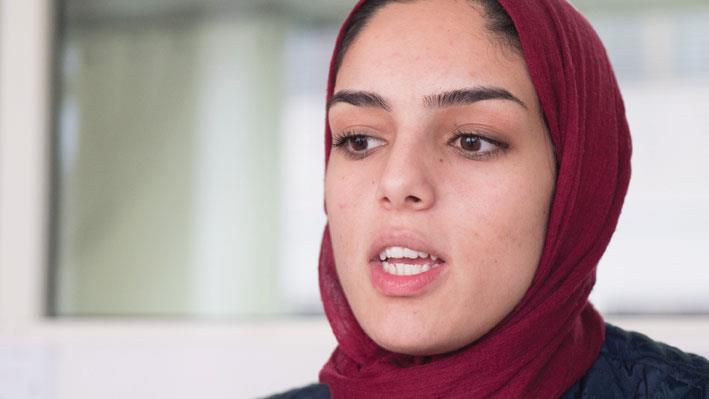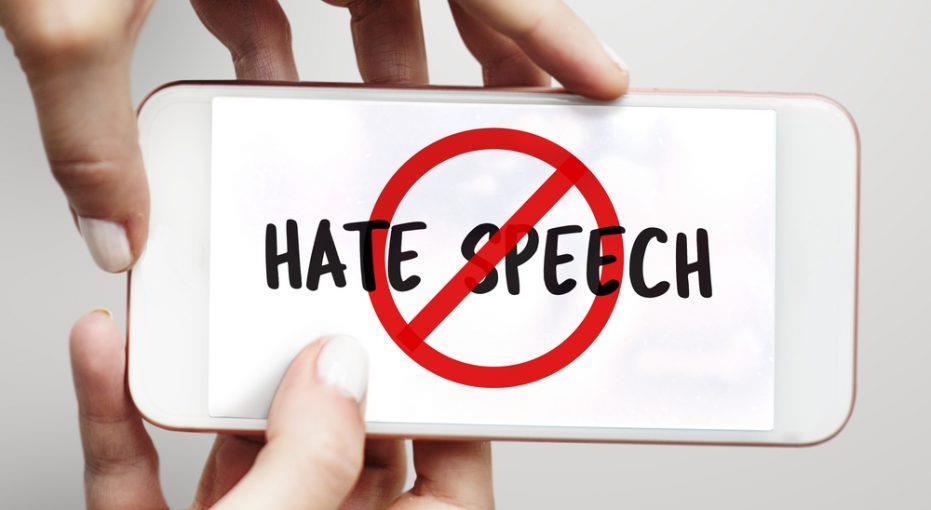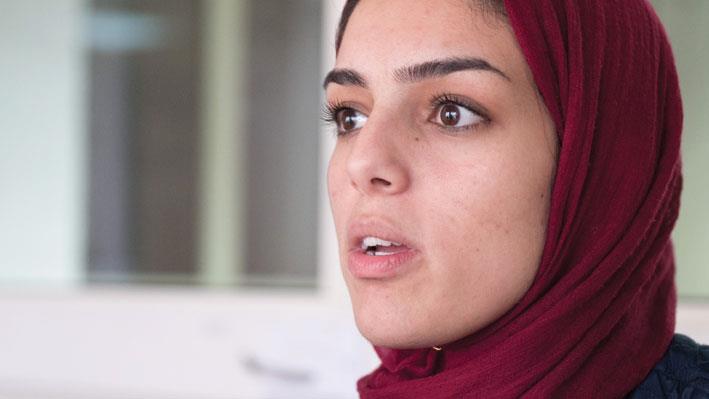A recent court judgment that deemed a racist comment to be an opinion and the way in which the police deal with reports of hate speech is discouraging people from reporting such crimes, claims activist Sara Ezabe.
In an interview being published today, Ezabe says she disagreed with the judge’s interpretation of the Facebook comment. “When an expression impinges on someone else's human rights it stops being an opinion. People are entitled to their opinions but telling people to go back to their country is not an opinion. That is a statement.”
The young activist said the judge did not call her on to give her side of the story or to see how she felt about the comment. “The police presented the case objectively, as it should be, but the human element was lost,” she says.
She argues that, once such a comment was deemed to be only an opinion, others targeted by hate speech might feel discouraged and not report.
The activist describes the normal system of filing a report as “impractical”, adding that in some cases, she was not even informed that action would be taken.
“I did not even receive an acknowledgement that they had received my comment. Four months down the line I got to know, not even from them but from the media, that the court decided otherwise. You are completely left out of the picture but your name is mentioned in the court judgement which is odd. This is why people are discouraged from reporting.”

How would you go about defining hate speech?
It is expressing hate towards a group of people for example because of their political or religious beliefs. The law does not address hate speech online but generally refers to hate crime. There is a big difference, however, between hate speech and hate crime. Hate speech is usually not taken seriously even by the police and not much action is taken. When you see a comment on Facebook it is difficult to tell if it is hate speech or not. Only the court can decide that.
How did you get involved in this activism?
I initially got involved because of the comments that I face. I wanted to know what kind of legal action I can take with regards to certain comments. Of course, as a law student, I was interested in learning more about it. What I wrote was about social policy so it is not legal in nature but then laws are based on these social policies to establish the needs of society.

Where would you draw the fine line between freedom of expression and hate speech?
Hate speech is the limitation to freedom of speech. It is very difficult to establish what is hate speech since it is taken very subjectively. Even though someone may feel offended by a comment the court may decide otherwise.
Earlier this year there was a case reporting saying that a man was acquitted of inciting racial hatred against you. The Magistrate ruled that the man was simply expressing his opinion in a Facebook post telling Muslims they should “go back to their country” if they did not abide by the law. How did you feel about this?
The fact that whilst someone is expressing their opinion it impinges on someone else's human rights stops making it an opinion. People are entitled to their opinions but telling people to go back to their country is not an opinion. That is a statement.
The judge presiding over this case did not call me in to give my side of the story and how I felt about the comment, which could have only helped the situation. The police presented the case objectively, as it should be, but the human element was lost.
The sentence mentioned my name and that I reported but then I was not consulted in the process. Even worse there is an offender in this case and I was not protected for reporting. I reported because the comment affected me but someone else would not report risking their name being spread out to the offenders. I was not even informed that there was a judgement.

Do you think this is one of the main reasons people do not report hate speech?
Yes. Also, people do not report because even from my case, which was the typical comment you find on Facebook, it was deemed to be just an opinion, so why would they report?
There was another court case concerning hate speech towards Roberta Metsola. The outcome was completely different because she is an MEP. I do not understand why this distinction was made. If a comment is offensive it is offensive to everyone.
You did not appeal the case. Why is this?
I was so disheartened by the sentence that I did not even bother to appeal. I do not see the whole justice system in this way. However, it is already very difficult to face certain comments repetitively on Facebook and it is even more difficult to get the courage to report them. You get nothing by reporting, except preventing other people from sharing this kind of hate.
I filed several other reports and the police always took action but I was asked to go to the police station to file the report which I think is very impractical.

What is the procedure to report hate speech?
The last time I was told to send a screenshot to the cybercrime unit and then they proceeded themselves without informing me. I did not even receive an acknowledgement that they had received my comment.
Four months down the line I got to know, not even from them but from the media, that the court decided otherwise. You are completely left out of the picture but your name is mentioned in the court judgement which is odd. This is why people are discouraged from reporting.
Do you think certain comments have become normalised?
Yes, some people just say what comes to mind. You do not want to censor people from expressing certain things because the feelings are there. For example, if people have certain sentiments about immigrants just deleting their comments online is not solving the situation. The sentiments are still there and people can resort to other means which can be more dangerous.
Do you think hate speech does result in real life crime or is it just people spewing words without really thinking about what they are writing?
It is more dangerous when it is organised like groups on Facebook ‘Ghaqda Patrijotti Maltin’ and Norman Lowell’s group. These groups of people are obsessed and it becomes a hub of hate. These people encourage each other and edge each other on. They put up their events on these groups which then materialises into something real.

Do you take these type of comments personally?
It depends on what you are going through. If you really are feeling a sense that you do not belong in the community it hits you. This why I feel it is important that one is called as a witness in court, in such cases, to share their experiences.
I am a spokesperson and have a strong opinion on this matter so I expect certain comments and do not take it very personally. However, for example, if a Syrian comes to Malta escaping war, already traumatised and he is told go back to his own country, it could lead him to suicidal thoughts.
Go back to your own country has become like saying hello. Behind such statements, there is an underlying concern about foreigners in Malta by most of the Maltese people. It is not even people who have a sentiment of hate, intolerance or in acceptance to difference. There is the concern that this country is becoming overpopulated and we need to address this situation.
Any social problems are blamed on foreigners, it is the easiest way of finding a solution to our problems. This is even being said by our political leaders in the opposition.

Are you referring to the comments passed by Adrian Delia?
Yes. Politics really affects people in Malta, I think people believe in politics more than religion. If political leaders are saying such statements it reinforces peoples’ concerns.
I do not believe Adrian Delia is racist but he is using these comments as a political tactic. This in itself is a problem. Alex Pisani of Ghaqda Patrijotti Maltin is known for his comments and in reality did not get anywhere in elections. However, with Adrian Delia, it is completely different as his following is much larger. So if he says it people will believe it as true.
Do you think hate speech is a local or global problem?
I think it is a global problem. There is a current wave which is going back to very dark times in human history. Some statements made by political leaders around the world can be compared to the ideology that Hitler had. This has resulted in a culture of insensitivity and indifference towards others.